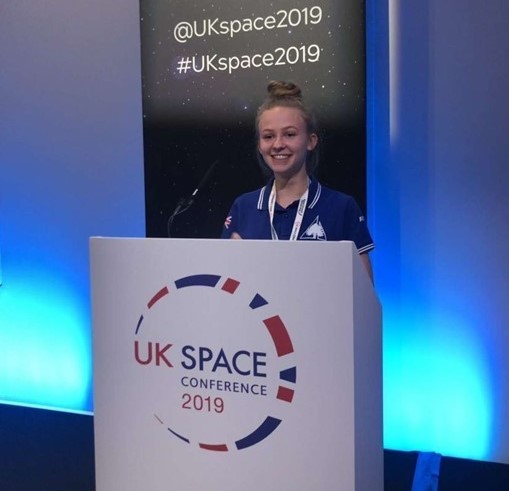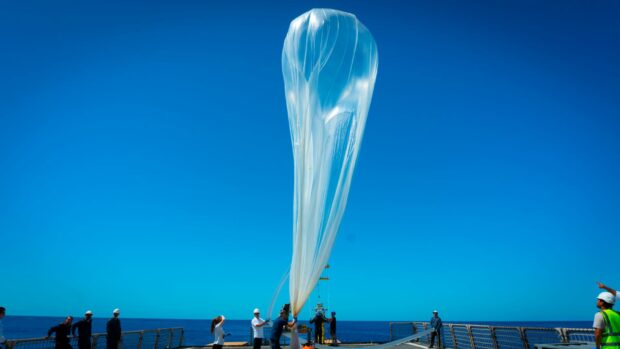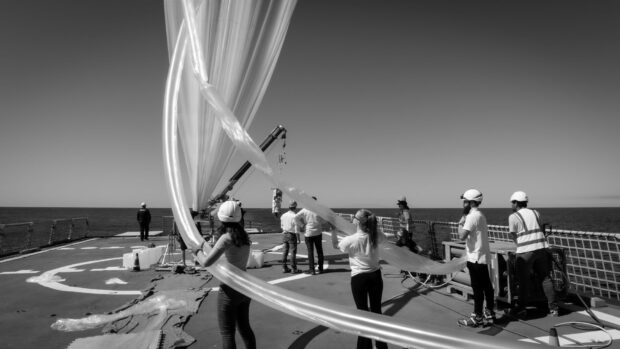To celebrate International Day of Women and Girls in Science, we spoke to Daisy Richardson, a Junior Aerospace Engineer at B2Space.

In 2018, Daisy was part of the winning team for CanSat - a competition run by the European Space Agency and sponsored by the UK Space Agency that gives students practical experience of a real space project.
Daisy went on to study physics at university, and was invited to speak about taking part in the ESA initiative at conferences across the UK.
It was at those conferences where she learned about the Space Placements in INdustry (SPIN) scheme, which we run with the Satellite Applications Catapult. Companies interested in supporting interns in 2023 can apply for £150,000 of funding from us now.
Daisy successfully applied for a 3-month SPINternship at B2Space - a space company that offers low cost access to Low Earth Orbit for small and micro satellites - and became part of a project to design a habitable origami space module that could attach to the International Space Station.
Not long into her placement, Daisy decided to stay at B2Space and now works as a Junior Aerospace Engineer.
We asked Daisy some questions to find out more...

UK Space Agency: How did you learn about the CanSat and SPIN programmes? What made you apply for them?
Daisy: I found out about CanSat through advertisements at my school whilst studying for sixth form, and learnt about SPIN when speaking at conferences about our success in CanSat, and I looked further into it as I was looking at how to get into the space sector.
Were there other routes into the space sector you thought about taking if the CanSat and SPIN programmes weren’t available?
I was going to go and study for a masters and even had a place at UCL to study Space Science and Engineering. I also considered graduate roles and internships such as those offered by Airbus.
How important are programmes such as CanSat and SPIN to help diversify the sector?
Extremely. It provides a chance for young people who have no experience in engineering to really try it out. It also allows young people to realise the space industry isn’t just astronauts and engineers; there are job roles for everyone. The CanSat and SPIN programmes allow people to have a ‘head start’ for a career within the space industry.

What do you love about working in the space sector?
It would have to be participating in the launches. The team atmosphere on a launch day is like no other, and seeing a project you’ve worked on come together is so satisfying, especially when the launch is successful.
What are the challenges you face working in the space sector?
Since most of the projects in the space industry are the first of their kind, there is never a ‘right way’ to do anything. This is difficult after doing a degree in physics where there is always an answer and it is always right or wrong.
What are your plans for your career?
I’m very happy in my current position and I want to learn as much as possible whatever role I am in.
What advice would you give to girls interested in a space sector career?
Say yes to as many opportunities as possible, even if they don’t yet seem relevant to your career path. Every experience has skills that will be useful to you at some point down the line. By taking part in projects and attending events you’ll make connections and hear about opportunities that you wouldn’t have known about.
Leave a comment